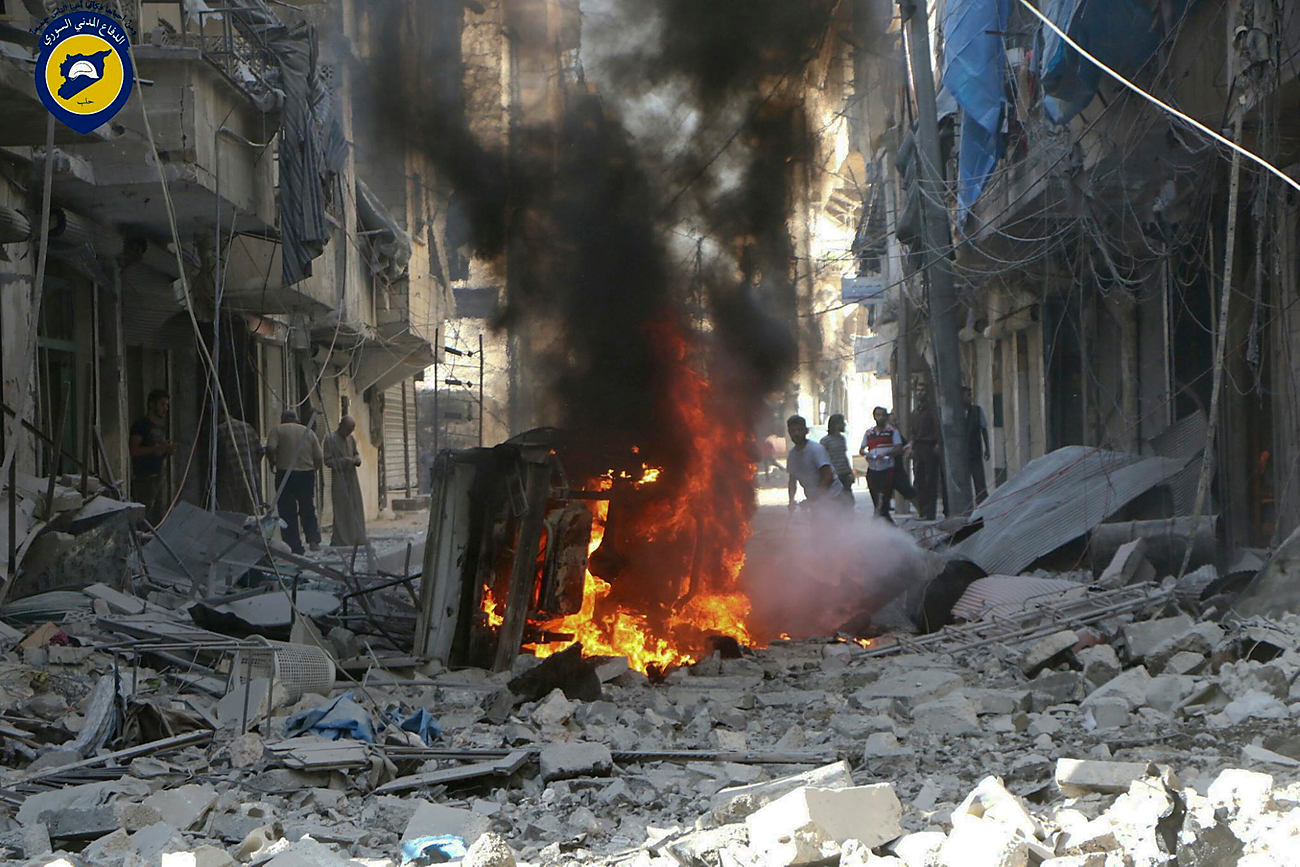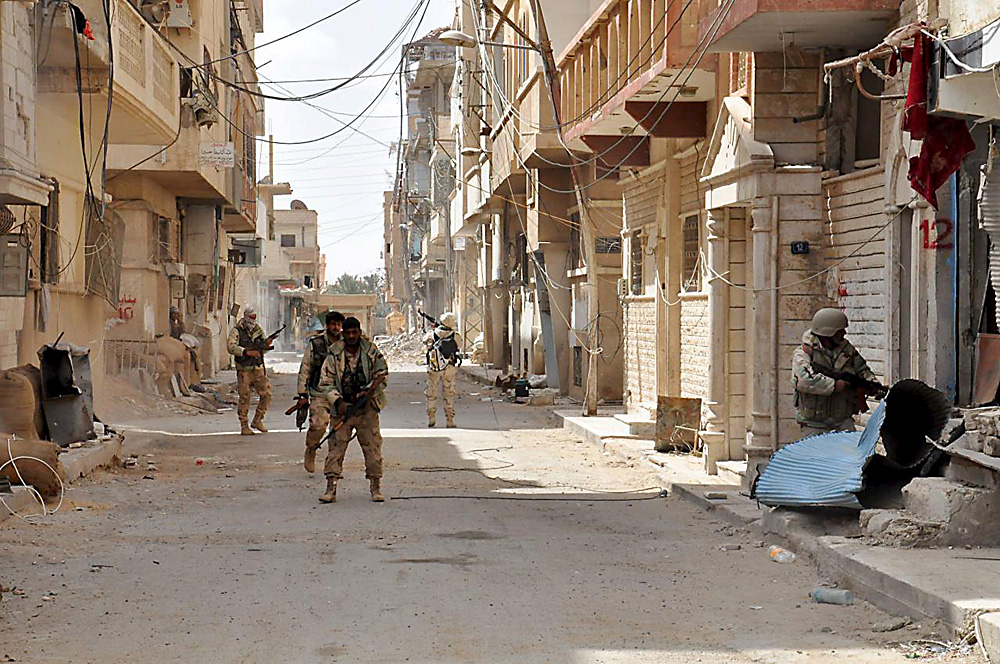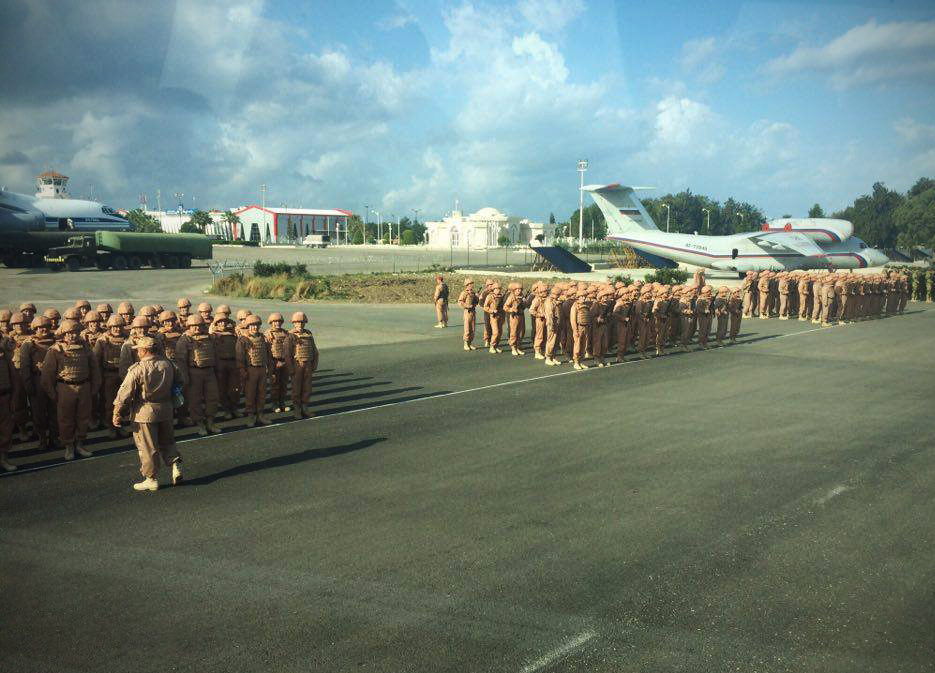What happens now in the Syrian deadlock?

Syrians inspect damaged buildings after airstrikes by government helicopters on the rebel-held Aleppo neighborhood of Mashhad, Syria, Tuesday Sept. 27, 2016.
APMutual and mounting accusations between Moscow and Washington over the conflict in Syria have become ever shriller after the ceasefire concluded by Russian Foreign Minister Sergei Lavrov and U.S. Secretary of State John Kerry on Sept. 10 collapsed a week after it went into effect.
After an incident on September 17, in which U.S. forces mistakenly bombed Syrian government troops in Deir ez-Zor, and the bombing of a UN humanitarian convoy on September 19, for which the West blames Russia, the war has recommenced with even more intensity.
Government forces and opposition divisions are fighting for Aleppo, where a humanitarian catastrophe already looms. Meanwhile, Russia and the U.S., supported by other Western countries, are fervently criticizing each other, with each side convinced that the other’s actions are to blame for the breakdown of the peace process.
Passions growing
"We are on the verge of suspending the discussions," said John Kerry on September 29, as he spoke about the negotiations with Russia on the peace process in Syria. Talk of establishing peace, he felt, was becoming meaningless since attacks on rebel positions have renewed in Aleppo and trust between the two sides is lacking.
This was not the harshest statement coming out of Washington. Earlier, U.S. State Department Spokesman John Kirby blamed Russia for the continuation of the Syrian conflict (because of Russia's support for Syrian leader Bashar al-Assad), saying that the consequences for Moscow will be that terrorists would attack Russian cities and Russia "will continue to send troops home in body bags."
Sergei Ryabkov, Russian Deputy Foreign Minister called Kirby’s statements "unconcealed cynical threats," while Defence Ministry Spokesman Igor Konashenkov said Kirby's statements revealed that the Syrian U.S.-backed opposition is actually "an international terrorist organization." Kirby later clarified that his words did not contain any threats.
Road to peace blocked
Russia and the West's rhetoric is becoming increasingly aggressive, driving the peace process to a dead end, said professor Grigory Kosach, an Arab scholar at the Russian State University for the Humanities.
"Both on the Russian and Western sides, the "parties of war" are gaining the upper hand. They do not wish to reconcile with each other and do not want to speak about restarting the political process in Syria," said Kosach.
He feels the prospects of renewing the peace talks are bleak. Representatives of the Syrian Opposition High Committee for Negotiations has stated that it will be impossible to restart them, which means that the militias seeking to remove Assad from power are ready to continue fighting.
On the other hand, said Kosach, Assad is no less belligerent and in the present conditions he holds the key to the Moscow-Damascus axis.
"In many aspects, Russia is just going with the flow in its relations with the Syrian regime,” he said, describing this position as extremely disadvantageous.
Maxim Yusin, an analyst for the Kommersant business daily, agrees with Kosach: "Advocates of the hard line in Damascus stubbornly continue to declare an unachievable objective – winning the war," he told Kommersant radio.
Yusin believes the situation has reached an impasse: Neither Assad nor the opposition has the resources to win the war. There are no alternatives to a peaceful resolution, but currently the sides are obviously not ready for it.
Syria and sanctions
Speaking about what Washington sees as an extremely unconstructive position on the part of the Kremlin, White House Spokesman Josh Earnest said on September 27 that the U.S. and its partners may impose additional economic sanctions on Russia.
Such a possibility was also mentioned later by British Foreign Secretary Boris Johnson, in an interview with Sky News.
Russian presidential press secretary Dmitry Peskov responded by insisting that the mention of sanctions engenders "profound incomprehension" among those who are aware of the “real” state of affairs concerning the regulation of the Syrian conflict, adding that following a policy of sanctions would lead to nothing good.
"I think that the West will not introduce new anti-Russian sanctions, but the situation with the existing ones is already getting worse," said Sergei Karaganov, dean of the World Politics faculty at the Higher School of Economics.
In his view, cooperation between Russia and the West on Syria had earlier opened possibilities for collaboration in other spheres, including the potential removal of sanctions. Now, however, after the failure of the peaceful regulation and the growth in reciprocal distrust, this possibility can be forgotten.
All rights reserved by Rossiyskaya Gazeta.
Subscribe
to our newsletter!
Get the week's best stories straight to your inbox

